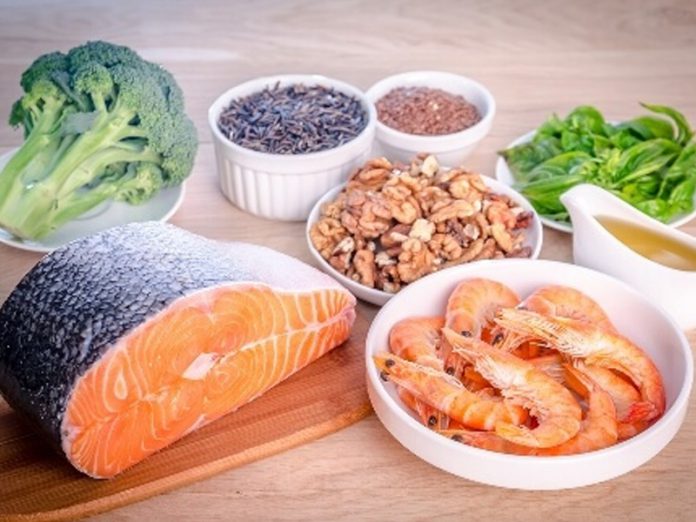This post is also available in: English हिन्दी (Hindi) বাংলা (Bengali)
A baby’s nutritional needs between 8-12 months are more important than us adults. The vitamins, minerals and energy that they absorb during this period play a huge part in their physical growth and mental development. When planning the diet of a 8-12 months old baby, including highly nutritious foods is really important.
This phase is transitional; so you’d want to include foods in addition to the milk (breast milk or formula) that you are giving you baby. Nutrients that are critical for your baby’s growth at this time are –

Vitamin A – Good sources include potatoes, carrots, coloured vegetables (as they contain carotenes that will convert to Vitamin A) and leafy greens, for their chlorophyll content that mimics blood hemoglobin.

Vitamin C – This keeps baby’s immunity up. Vitamin C is found in citrus fruits, kiwi, papaya, strawberries, lychees, greens and sweet potatoes.

Omega 3 – This is found in chia, flax, nuts (specially walnuts), seeds and oily fish.

Vitamin D – Good sources include whole cereal grain like millets and brown rice, green vegetables and milk.

Zinc – Pumpkin, sesame seeds, rajgeera flour in the form of rotis, chickpeas, spinach and yogurt are rich sources of zinc.
A combination of whole grains and vegetables makes for a ‘nutrient dense’ diet. One can try: millets and brown rice, vegetables, fruits and chicken soup.
The food groups listed above will make for happier calmer babies; they will keep your baby’s immune system healthy, which will protect your baby against illnesses and allergies. These foods are fiber-rich; they will strengthen your baby’s digestion and feed the good gut bacteria. They will keep the blood quality balanced and increase circulation. They will also help create strong teeth and bones. Grains and vegetables used together make for the best brain food, and this combination helps enhance the baby’s concentration and focus.
Center your meals on the food groups mentioned above and use baby’s snack-time to incorporate the same foods, with the provision of snacks that can be chewed. Do not include beverages, as these are not high on nutrition and full of sugar and additives. Eating these foods instead of using them in a liquid format is much better.
Proportions
- 2-3 tablespoons of cooked vegetables, and whole grains
- 2 cups cooked cereal grain (e.g. brown rice soaked overnight, cooked the next day and mashed is a great option)
- 4-5 tablespoon of soft fruit
- 2 tablespoon of cheese or yogurt
- ½ an egg
Health tips –
Including chia, flax seeds (alsi), cauliflower, broccoli, fish and walnuts will help supply essential fatty acids (EFAs) that the baby needs like Omega 3. This is vital as babies’ bodies do not make these essential fatty acids on their own.
Adding plenty of fiber via whole grains like mixing brown rice with white rice and adding fibrous vegetables like cauliflower, sweet potato, red pumpkin, and legumes will feed your baby’s good gut bacteria. This will keep your baby’s inner ecosystem healthy.
Here is a sample meal plan for 1 day –

By
Shonali Sabherwal – Macrobiotic Nutritionist | Chef | Author |Fermentation Coach
 About Shonali Sabherwal – She is a celebrity dietician and a Macrobiotic Health Chef. Her website http://soulfoodshonali.com/about/ – talks about a Macrobiotic diet lifestyle which involves food as a holistic approach in healing the human body. Spreading awareness about this new lifestyle she has authored three books- The Beauty Diet, The Detox Diet, and The Love Diet. As a flourishing Counselor she caters to Indian as well as clients from Abroad and applies her skills in educating them about this unique approach to health and lifestyle.
About Shonali Sabherwal – She is a celebrity dietician and a Macrobiotic Health Chef. Her website http://soulfoodshonali.com/about/ – talks about a Macrobiotic diet lifestyle which involves food as a holistic approach in healing the human body. Spreading awareness about this new lifestyle she has authored three books- The Beauty Diet, The Detox Diet, and The Love Diet. As a flourishing Counselor she caters to Indian as well as clients from Abroad and applies her skills in educating them about this unique approach to health and lifestyle.
© Shonaalii Sabherwal Healthier Lifestyle Options Pvt. Ltd. All rights reserved.
http://www.soulfoodshonali.com
This post is also available in: English हिन्दी (Hindi) বাংলা (Bengali)










